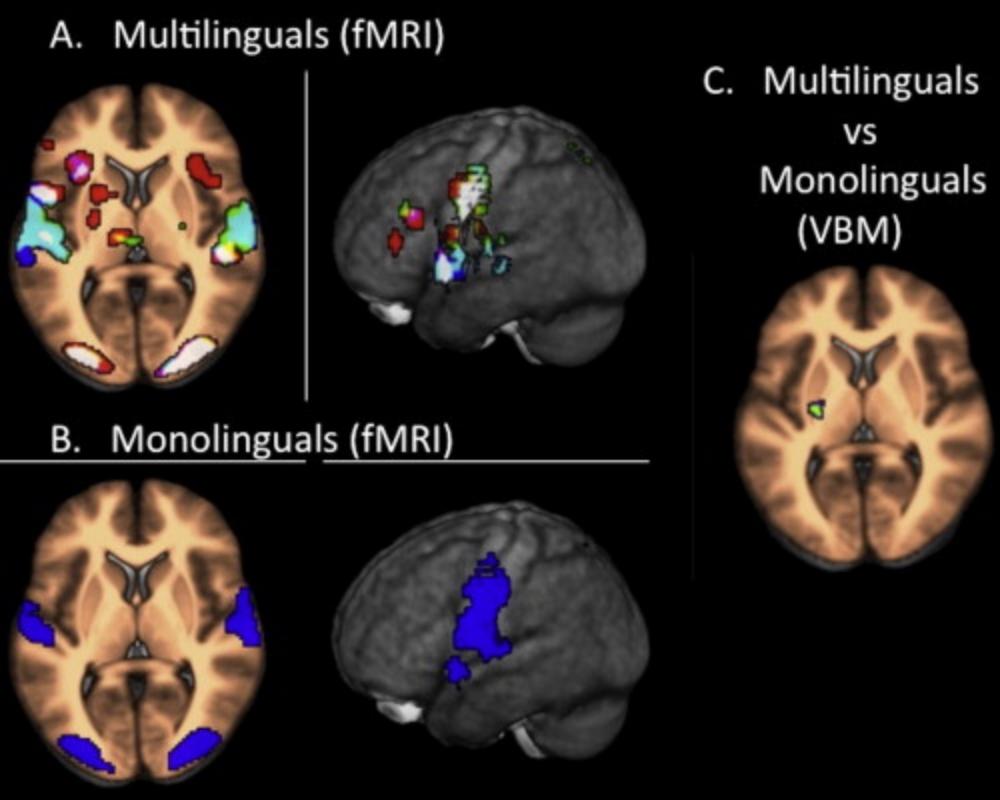The cognitive benefits of being multilingual
Curated from: brainscape.com
Ideas, facts & insights covering these topics:
10 ideas
·4.88K reads
35
1
Explore the World's Best Ideas
Join today and uncover 100+ curated journeys from 50+ topics. Unlock access to our mobile app with extensive features.
1. A better, innate understanding of how language works
Multilingual people tend to understand things like grammar, conjugations, and sentence structure better than monolinguals. These people can more quickly pick up on the structure of any language and clearly understand how it can be used.
Multilingual people also tend to be more effective communicators, more exact editors, and more compelling writers, because they better understand how languages function, including in their native language.
35
587 reads
2. Less mental decline in old age
Many studies have shown that the more elderly people "exercise" their brains every day, the less cognitive decline they experience overall.
Jumping between languages is a particularly effective way to attain this benefit!
In fact, several studies have demonstrated that bilingualism can delay the onset of dementia and Alzheimer’s disease by an average of five years!
36
525 reads
3. + efficient and + developed executive control in the brain
When you are multilingual, you constantly switch between languages without thinking about it. And this is why multilingual people tend to have better developed executive control systems.
A more developed executive control system allows multilingual people to better perform tasks that require high-level thought, multitasking, and sustained attention.
34
492 reads
4. Greater cognitive flexibility and problem-solving skills
Learning a new language requires the brain to express similar thoughts in different ways and because of this multilingual people develop greater cognitive flexibility. This translates into other areas as improved creativity and problem-solving, as well as the ability to perceive situations in different ways.
34
441 reads
5. Improvements in learning abilities
Inhibition is key to learning new information and skills, as it allows you to focus on what's important while reducing interference from what you already know, as well as similar concepts. Since multilingual people have better-developed inhibition, studies demonstrate that they can not only learn a third or fourth language quicker, but can develop any learned skill faster.
34
419 reads
6. Changes in neurological processing
Brain imaging techniques, such as fMRIs, have shown that multilingual brains tend to activate the linguistic portion of their brains even when not engaged in linguistic tasks. This leads researchers to believe that the brain’s ability to connect skills tends to enhance cognitive function over time.
Studies show that multilingual people have a higher density of grey matter in their brains, and older bilingual people usually have better-maintained white matter, even late in life
34
410 reads
7. More rational decision-making skills
A study done at the University of Chicago demonstrated that bilinguals tend to make more rational decisions. As language contains nuance and subtle implications in its vocabulary that can subconsciously influence your judgment, thinking in your native language tends to be fraught with emotional biases.
36
388 reads
8. A more perceptive understanding of the world
Multilingual people tend to be better at observing their environment and spotting misleading information. Perhaps this is because of their enhanced inhibition skills. Multilingual people have been shown to be keen observers of the world around them, as well as more skilled at identifying and correctly analyzing the sub-context of a situation and interpreting the social environment. This makes multilingual people highly perceptive,
33
354 reads
Multilingualism is great for your brain
As you can see, the cognitive benefits of multilingualism can potentially outweigh the concerted effort of learning a new language.
33
403 reads
IDEAS CURATED BY
CURATOR'S NOTE
Multilingualism has widely recognized social and career benefits. But did you know you can also reap the huge cognitive benefits of being multilingual?
“
Similar ideas
Read & Learn
20x Faster
without
deepstash
with
deepstash
with
deepstash
Personalized microlearning
—
100+ Learning Journeys
—
Access to 200,000+ ideas
—
Access to the mobile app
—
Unlimited idea saving
—
—
Unlimited history
—
—
Unlimited listening to ideas
—
—
Downloading & offline access
—
—
Supercharge your mind with one idea per day
Enter your email and spend 1 minute every day to learn something new.
I agree to receive email updates


